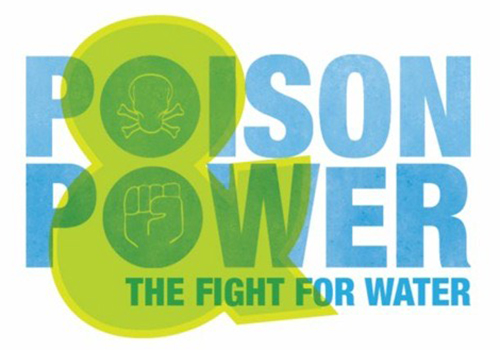Depth of the water crisis
It’s not a luxury, it’s a necessity — one that many take for granted.
“Clean drinking water is, first and foremost, a fundamental human right, one that should be guaranteed to everyone no matter their class, race, sexuality or the region they live in,” senior human rights major Grace Gibson said.
 Gibson was one of 12 members of the University of Dayton community — nine of them students — who tackled the issue in Season 3 of the Moral Courage Project podcast series, Poison and Power: The Fight for Water. The students interviewed more than 30 people, selecting 12 “water warriors” whose stories are highlighted as part of the six-episode series.
Gibson was one of 12 members of the University of Dayton community — nine of them students — who tackled the issue in Season 3 of the Moral Courage Project podcast series, Poison and Power: The Fight for Water. The students interviewed more than 30 people, selecting 12 “water warriors” whose stories are highlighted as part of the six-episode series.
“The issue of clean water is more than an abstract issue, it is truly a matter of life and death, one that people don’t necessarily think about as they brush their teeth in the morning or grab a glass of water on a hot day,” Gibson said. “It was time to hear from these heroes who have fought against impossible odds to secure safe, clean drinking water for their families.”
Moral Courage Project tells the stories of people who refuse to be bystanders, celebrating individuals who take risks to make important contributions in their communities during moments of crisis. “Poison and Power” focused on the unsung, everyday heroes fighting for access to clean and affordable water in Flint and Detroit, Michigan, and in Appalachia.
“Water issues in the United States are much more common and run much deeper than most people think,” 2021 UD graduate and team member Claire Sullivan said. “The depth and extent of the problem is shocking.”
So, too, is the lack of awareness.
“Often, when people think of a water crisis, they imagine poorer countries in South America or Africa,” Gibson said. “There’s a disconnect in the reality of the problems surrounding water in the United States, that people believe it could never happen where they live.”
That’s why — despite the added complications the pandemic created — the group worked to interview, write and produce the series, primarily via Zoom.
“Looking back, it was kind of a roller coaster because, early on, we weren’t even sure we would be able to do it,”
Sullivan said. “But seeing how much we were able to accomplish, in spite of COVID, is pretty amazing.”